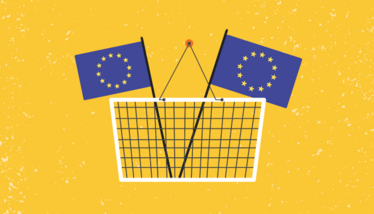Everyone Loves Pharma?
Brexit on the horizon, a Nestle acquisition, and everyone loves pharma…? What’s new in business?

Researchers from The Harris Poll found that 40 percent of the American public believe that pharma’s reputation had improved since the beginning of the COVID-19 outbreak, with 81 percent recalling seeing or hearing something about the industry during that time (1). The industry is at its highest ever point in terms of its reputation and relevance, according to Rob Jekielek, managing director at Harris. The company has been polling pharma for almost two decades.
The UK government has asked pharma companies to maintain six weeks’ worth of supplies on UK soil when the Brexit transition period comes to an end on January 21 2021 (2). They also warned freight operators delivering medical supplies from Europe to avoid the Channel Ports as “a matter of priority.” In response, the ABPI reiterated their call for a Mutual Recognition Agreement covering drug safety testing and inspections (3).
Nestle is set to acquire Aimmune Therapeutics for $2.6 billion. Aimmune developed Palforzia, the first and only FDA-approved treatment for peanut allergy, which works by exposing children to small but increasing amounts of peanut (4). The news came a few weeks after DBV Technologies’ skin patch for peanut allergy – a potential Palforzia competitor – was rejected by the FDA 21 months after the company first filed for approval (5).
- MM+M (2020). Available at: https://bit.ly/3jxfKaY.
- UK Gov (2020). Available at: https://bit.ly/31RQfvb.
- ABPI (2020). Available at: https://bit.ly/3hPZaT5.
- Nestle (2020). Available at: https://bit.ly/2QFiEOy.
- Endpoints (2020). Available at: https://bit.ly/2EWUhsN.

Over the course of my Biomedical Sciences degree it dawned on me that my goal of becoming a scientist didn’t quite mesh with my lack of affinity for lab work. Thinking on my decision to pursue biology rather than English at age 15 – despite an aptitude for the latter – I realized that science writing was a way to combine what I loved with what I was good at.
From there I set out to gather as much freelancing experience as I could, spending 2 years developing scientific content for International Innovation, before completing an MSc in Science Communication. After gaining invaluable experience in supporting the communications efforts of CERN and IN-PART, I joined Texere – where I am focused on producing consistently engaging, cutting-edge and innovative content for our specialist audiences around the world.



















